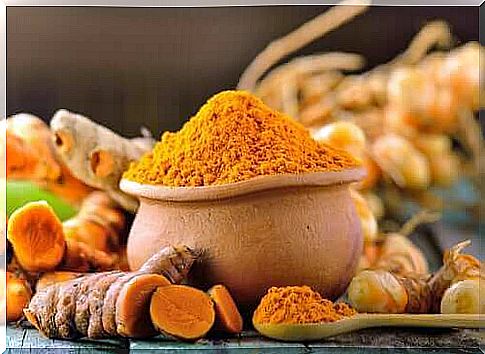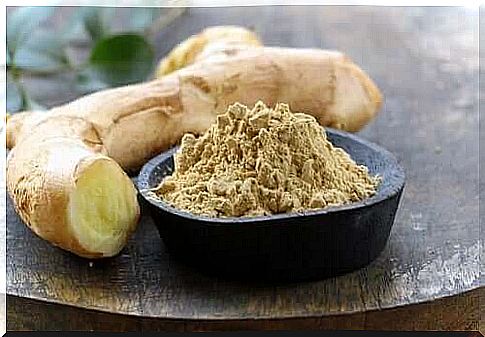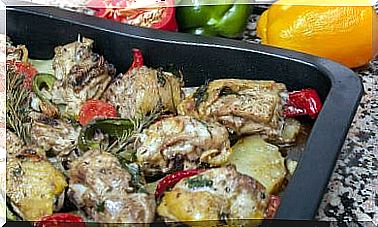The Best And Worst Foods For Joints

It is important to follow a healthy diet and to consume the best foods for joints to ensure good physical health. Joints are exposed to daily hard work. Thus, if they are not cared for properly, they can be seriously injured.
Joints are the points in the body where two bones meet so that they can move. Therefore, they consist of bone and cartilage. These structures can be easily damaged.
Both aging and physical activity significantly increase the risk of these injuries. However, if you eat the right foods, you can help protect and care for them.
A very common joint disease is rheumatoid arthritis. This disease is caused by wear and tear in hyaline cartilage. This is a highly specialized structure that covers the bone surface of the joints. Only partial treatments are available for them today.
The best foods for joints
According to scientific literature, these are some of the best foods to include in your diet:
Turmeric

Turmeric is a good ally in cases of arthritis and osteoarthritis. The good thing about it is that, unlike other anti-inflammatory drugs, it does not damage the gastric mucosa.
Furthermore, it is able to reduce histamine in inflammatory processes, as well as stimulate the activity of two enzymes: glutathione S-transferase and glutathione peroxidase. These enzymes are responsible for regulating the body’s response to inflammatory processes and facilitate the removal of waste products.
Olive oil
Olive oil and other foods rich in omega-3 fatty acids can reduce the chronic inflammation associated with various types of diseases and joint ailments. Therefore, it is important to include it in your diet.
Ginger

This natural remedy has been used for many years to treat nausea, migraines or even high blood pressure. In recent years, however, some journals have published different results on the benefits of osteoarthritis.
However, a study published in the Journal of Medicine Foods supports the beneficial role that ginger has for the joints.
Vitamin D
Although there is no cure for rheumatoid arthritis, science is advancing every day. Recently, a comparative and randomized clinical trial was conducted on the effect of vitamin D on various parameters of osteoarthritis of the knee.
The authors investigated whether administration of this vitamin could relieve pain, improve joint function, and alter some biochemical markers in 107 patients with osteoarthritis of the knee and hypovitaminosis D.
After a year of follow-up, the authors observed that those who consumed vitamin D showed improvement in pain and function, as well as normal vitamin D levels. That’s why vitamin D is great for your joints.
Other foods for joints
Besides the foods we mentioned above, many other foods can strengthen these structures. Here are some of them:
- Raspberries and blackberries
- Magnesium supplements
- Broccoli, cauliflower and other vegetables
- Oranges
The worst foods for joints

- Eating too much sugar and processed foods can worsen inflammatory processes, which is why it is important to lead a healthy lifestyle.
Just as some nutrients can improve joint condition, others can adversely affect them. Among these foods, shellfish and red meat stand out. Both food groups can promote the development of gout.
Gout is a disease that develops due to the accumulation of uric acid in the blood. It forms crystals that settle painfully in the joints. Therefore, it is not advisable to consume more than 17 grams of lean meat, chicken or fish a day. You need to consume the remaining proteins in legumes.
Other foods to avoid are sunflower oil and soybean oil. These oils are rich in omega-6 fatty acids, which can aggravate inflammation. Also be careful with industrial foods.
Finally, some studies suggest that sugar may increase inflammation. Despite the fact that it provides a rapid energy boost, it does not last and can be a burden for those who struggle with arthritis.
The best foods for joints: conclusion
To protect the health of your joints, it is important to lead a healthy lifestyle, not overwork yourself, and to follow a diet rich in vegetables, omega-3 fatty acids and vitamin D, among other nutrients.









